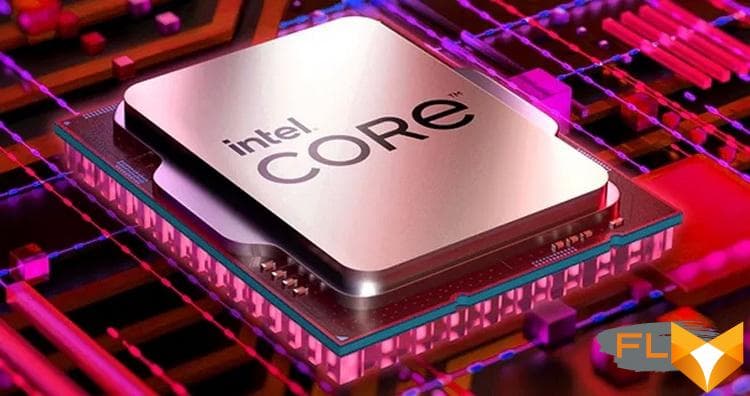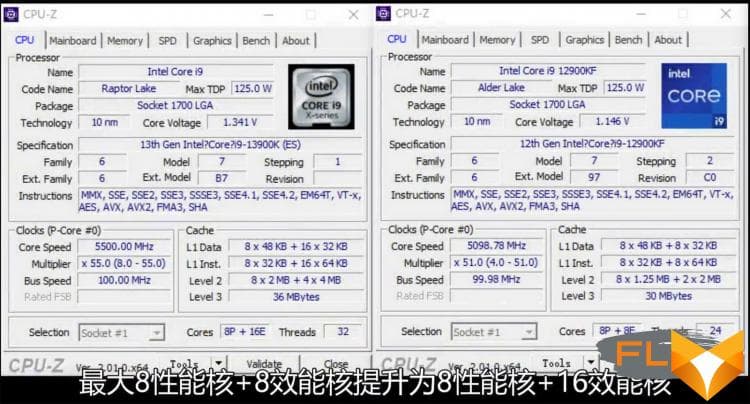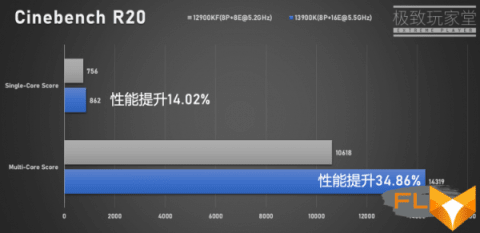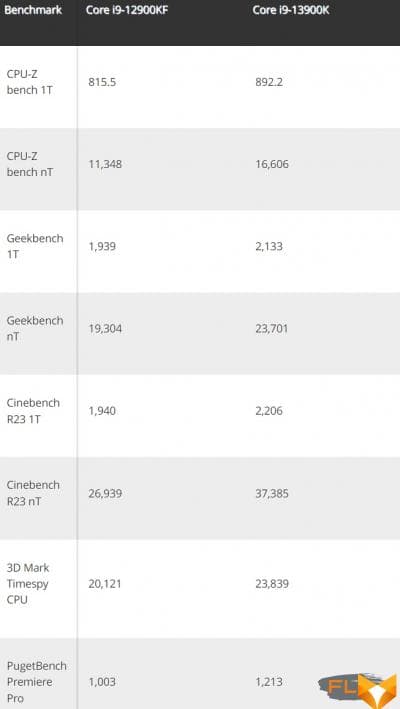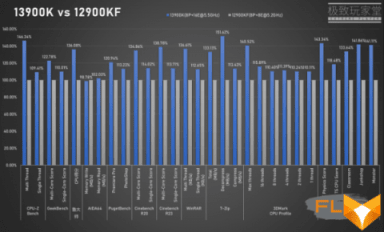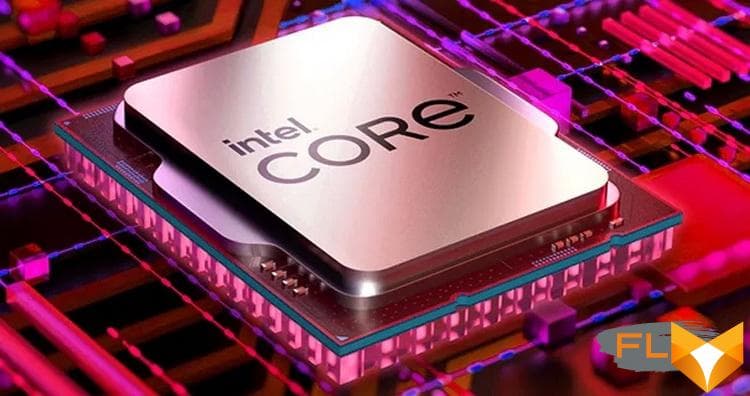


Chinese tech blogger Extreme Player has posted a video review of a qualifying sample of the Intel Core i9-13900K processor, the future flagship of the Raptor Lake series. Compared to engineering samples, qualification ones are more like consumer versions of the chips. In a comparison test with the Core i9-12900KF, the new generation chip was on average 10% faster in single-threaded performance and 35% faster in multi-threaded performance.
По данным обозревателя, базовая частота производительных P-ядер Raptor Cove образца Core i9-13900K составляет 3,0 ГГц. Все восемь таких ядрах смогли автоматически разгоняться до 5,5 ГГц. А два наиболее быстрых ядра смогли автоматически повышать частоту до 5,8 ГГц. В составе Core i9-13900K также имеются 16 энергоэффективных малых ядер Gracemont без поддержки технологии Hyper-Threading. Таким образом, общее число ядер у чипа составляет 24 штуки, а сами они поддерживают 32 виртуальных потока.
The Core i9-13900K and Core i9-12900KF models were tested under equal conditions. For the experiment, an ASUS ROG Maximus Z690 Extreme motherboard, DDR5-6400 RAM, a 1TB NVMe SSD, and a GeForce RTX 3060 Ti graphics accelerator were used.
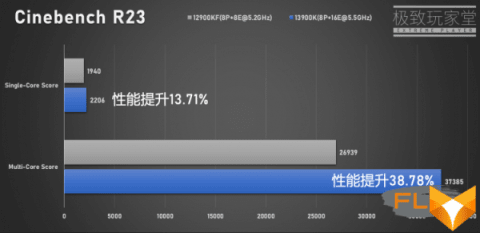
The table below shows the results of some tests. On average, Raptor Lake was 10% faster in single-threaded tests and 35% faster in multi-threaded tests.
The reviewer did not play test the Raptor Lake. However, he tested the speed of the RAM and ROM subsystem, and also experimented with the Raptor Lake operating voltage. In the same tests for memory write speed, increased delays were noted. But, it is very likely that this is due to the fact that the blogger used a motherboard BIOS that was not optimized for new processors.
A week earlier, ASUS began releasing firmware updates for its Intel Z690 chipset motherboards designed for Alder Lake chips. New BIOS versions add support for 13th generation Intel Core processors. Since then, the manufacturer has also started releasing updates for boards based on the Intel B660, H670 and H610 chipsets. However, there is information that new BIOS versions with Raptor Lake support are not intended for performance testing. Beta firmware versions are designed only for the initial launch of systems based on new chips.
“Users will have to wait for the official release of the 13th generation Intel Core processors to get a fully functional BIOS file,” ASUS noted. With that said, the performance of the Core i9-13900K qualifying sample is even more impressive.


